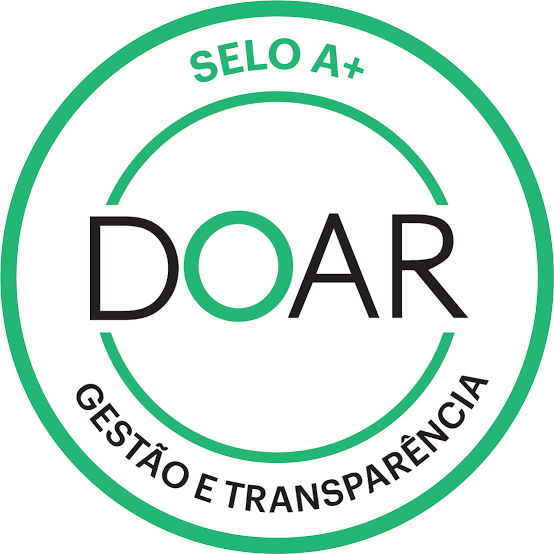Este site usa cookies para que possamos oferecer a melhor experiência de usuário possível. As informações dos cookies são armazenadas em seu navegador e desempenham funções como reconhecê-lo quando você retorna ao nosso site e ajudar nossa equipe a entender quais seções do site você considera mais interessantes e úteis.
Scout Method
Scout Method
Scouting’s educational approach is implemented through the Scout Method, an original educational system that promotes self-education, empowerment, and cooperative learning. As with any educational method, the Scout Method is the instrument that brings young people closer to the learning they are expected to acquire.
Applying the Scout Method results in an educational, fun and enjoyable experience for young people, where they are safe – physically and emotionally. Its goal is to be flexible and relevant to the dynamic needs of young people and society.
The Scout Method includes some interdependent elements that form a unified and integrated set. Those elements, all equally important, working together as a cohesive system, and their implementation, in a combined and balanced manner and adapted to each age group, are what makes Scouting unique.
The Elements of the Scout Method:
The Scout Promise and Law
The Scout Promise is a voluntary and personal commitment to the Scout Law, which is a set of comprehensive and shared values that are the basis of everything Scouts do and what they want to be like. The Scout Promise and the Scout Law are the center of the Scout Method. Through the Pledge, Scouts makes a conscious and voluntary decision to adopt the Scout Law, pledging to “do the best they can”; to use it as code of individual and social behavior; and thus, take responsibility for their personal development. Taking the Scout Promise is the first symbolic step in the process of self-education.
The Scout Law is a positive code of living through which Scouting proposes its universal values to young people in a concrete and practical way. The values contained in the Scout Law and adopted through the Scout Promise shape young people in their behavior and group life. Throughout their journey in Scouting, young people’s understanding of the Promise and The Scout Law will evolve and mean more and more to them. This learning journey is a decisive part of the intellectual, emotional, social and spiritual development experienced through Scouting and highlights its fundamental principles.
Learning by Doing
Scouting uses practical actions (real-life experiences) and reflections to facilitate continuous learning and development. Learning by doing shows Scouting’s practical approach to education as a result of direct experience rather than just theoretical instruction. It is based on learning through the opportunities through experiences that arise while pursuing interests and the dealing with everyday life. In Scouting, the acquisition of new skills – knowledge, skills, attitudes and values – is achieved through the practice of varied, fun and relevant activities that lead young people to act, make mistakes, reflect and discover, allowing them to develop in all dimensions of their personality by extracting what is personally significant from everything they experience.
Personal Progression
Scouting is a progressive learning journey, focused on motivating and challenging the individual to continuously develop, through a wide variety of opportunities. This approach allows young people to progress in their own development, in their own way and at their own pace, towards educational goals appropriate to their age group, using a progressive recognition system that helps them gain confidence and grow. Personal progression is autonomous, facilitated by adults who empower, encourage and support young people in an appropriate way to establish their own challenges, exercise their freedom of choice and engage in self-reflection. This element is also relevant outside Scouting, as it helps young people establish life goals and become active citizens. It offers everyone the opportunity to identify their personal needs and the resources needed to improve their individual skills, according to their own circumstances and skills.
Team System
Scouting uses small teams, such as patrols, so that individuals participate in collaborative learning and decision-making, with the aim of developing effective teamwork, interpersonal skills, leadership, and creating a sense of responsibility and belonging. This approach facilitates and enriches group life. In addition, it can be an effective tool for empowering young people, enabling them to work on their personal and collective skills through team building and the development of individual skills, talents and experiences. It also helps build a team spirit in which support is mutual and problems are solved collectively.
The basic organizational structure often used in local units comprises teams of six to eight young people, based on their natural tendency to form small groups. This system also applies to all types of small groupings for cooperative decision-making (e.g., local councils, district committees, event organization teams, executive project teams, etc.). In addition, it offers opportunities for leadership and helping them to appreciate diversity. It also enables Scouts develop constructive relationships with other youth and partnerships with adults and learn to live according to a democratic form of self-government.
Adult Support
Scouting relies on adults who support young people and facilitate the creation of learning opportunities through a culture of partnership to transform those opportunities into meaningful experiences. Scouting offers the potential for a partnership of enthusiasm and experience between young people and adults, based on mutual respect, trust and acceptance of others as a person. The adult provides educational, emotional, informative and evaluative support to young people in their own development.
Educational support involves offering tangible help and assistance that directly aid the self-educational development of youth. Emotional support is associated with sharing life experiences. It involves offering empathy, dedication, trust and care. Informational support includes providing advice, suggestions and information that young people can use to solve problems. Appraisal support involves providing useful information for self-assessment, which includes constructive feedback, personality affirmation, and compliance with organizational values.
The nature of the partnership between young people and adults in Scouting varies according to the age and abilities of the young people involved. Whenever possible, young people should be empowered to make decisions and contribute to the leadership process, and be able to make mistakes in a safe environment.
In general, adults are there to help youth prepare, as well as to support, guide, mentor, and facilitate learning experiences. In essence, the role of adults in Scouting is to reinforce the nature of the program: to be led by young people and supported by adults.
Symbolic Framework
Scouting uses a unifying structure of themes and symbols to facilitate the learning and development of a unique identity as a Scout. In Scouting, a symbolic framework is a set of symbols, themes and stories that develops a sense of belonging, helps convey a certain educational message and stimulates cohesion and solidarity within the group and the Movement at the global level.
The symbolic framework helps young people identify themselves with the purpose and values of Scouting, manifested through various themes and elements. It also represents Scouting’s educational proposal for a given age group, according to its level of maturity and its specific educational needs, which helps to recognize personal progression within the Educational Program.
The goal of the symbolic milestone is to harness the imagination, adventure, creativity and inventiveness of young people to stimulate their development.
Nature
Scouting creates outdoor learning opportunities that encourage a better understanding of the relationship with the environment in general. Nature’s environment provides an ideal setting for Scout activities, offering opportunities for adventure and learning for the physical, intellectual, emotional, social and spiritual development of young people. Outdoor activities can focus on a variety of topics, from classic campouts or hikes to projects related to sustainability or environmental education.
Even in places where the natural environment is limited, there may still be “external” activities. These experiences also allow young people to come into direct contact with nature in urban, rural and wild environments, which allows them to discover the vital relationship that unites human beings to the natural world and develop a constructive connection with nature.
However, such an element of the Scout Method involves more than just performing outdoor activities to develop constructive contact with nature, but also making full use of all the unique learning opportunities offered by the natural world to contribute to the development of young people. It involves the educational value of the challenge of being in nature, which encourages young people to be inventive and grow. It also involves the approach to sustainability, which provides a better connection, respects and encourages individual sustainable practices. Although he mentions the “forest,” Baden-Powell’s view of nature as an educational tool can be summed up as follows: “For those who have eyes to see and ears to hear, the forest is both a laboratory, a club, and a temple.”
Community Involvement
Scouting offers opportunities for active exploration and commitment to communities and the wider world, promoting greater appreciation and understanding among people. Working with and within their communities – local, national and global – young people increase their community commitment at all levels, their intercultural understanding and their international solidarity. It is an essential element in the youth development process and links every learning opportunity to how it can be used to serve the community. Service should not be seen only as doing things for others, but also as involvement, which means doing things with others, regardless of their origin.
Community engagement includes helping youth create a better world, a journey they cannot do on their own while leaving the community behind. The engagement of young people in community service empowers them to commit to active global citizenship, from their immediate context, and with the personal responsibility to understand their role in the community. It also allows them to understand how they can help transform their community for the better. The idea of citizenship is emphasized from an early age, because we do not have to wait for adulthood to be citizens. Moreover, this element of the Scout Method enhances the value of the community itself as an educational environment. As an African proverb says, “it takes an entire village to raise a child.” In Scouting, we value the role of the community at the local, national, regional and global levels. Therefore, it is an essential part of Method.

About Us
Brazil Brazil’s first report on the Scout Movement was in December 1909, in a publication of the…

Life Cycle
Adult Management Model Brazilian Scouting’s adult management model places emphasis on the adult leaders’ life cycle. The…

Progression
CUB SCOUTS When accepting Mowgli's invitation, you will have to go with him along the Jungle Path. Along…

Rover Scouts
Rover Scouts From the age of 18, and up to our twenty-first birthday, we are part of…
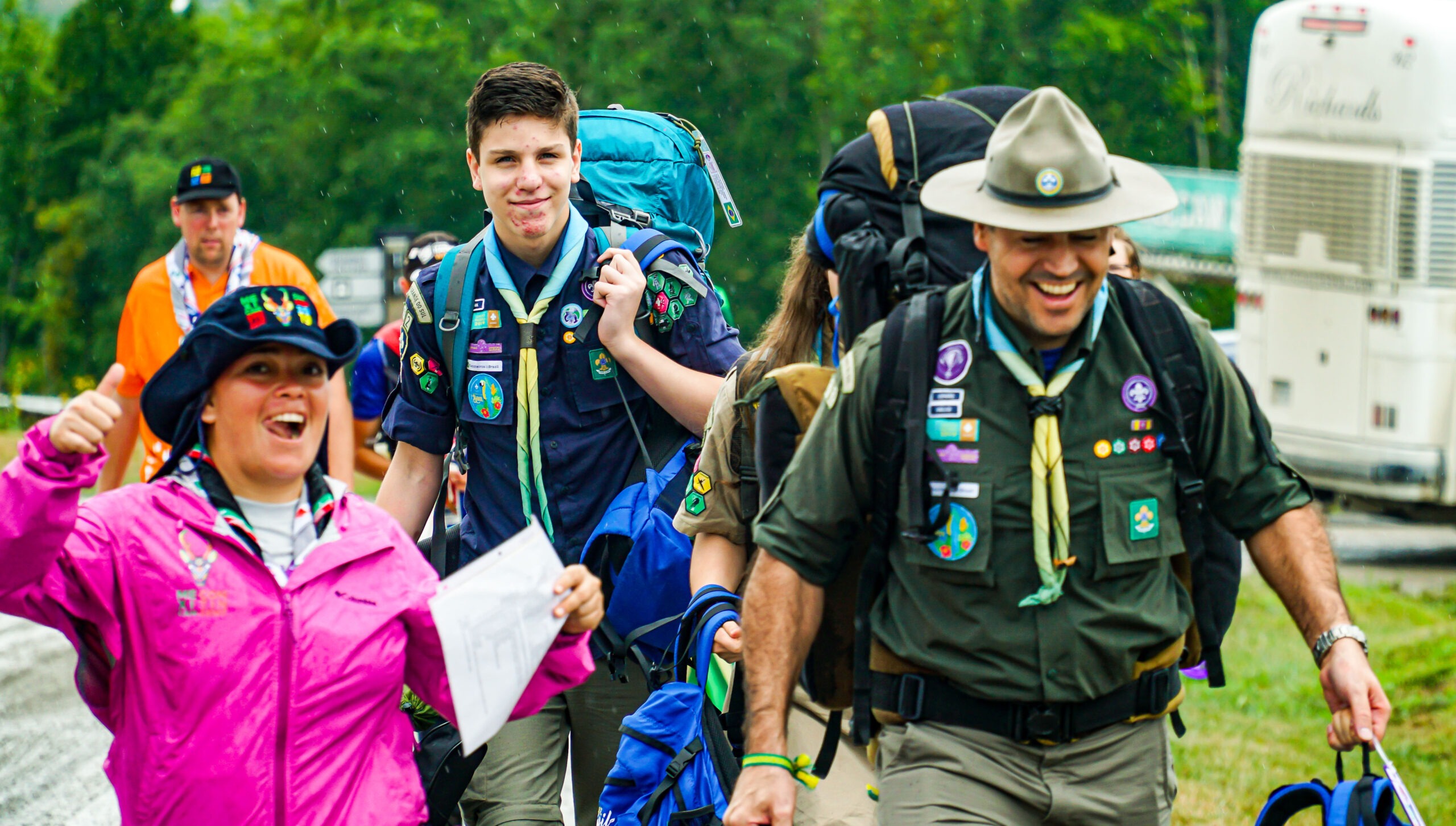
Scout Leader
Scout Leader Scout leaders are the volunteers who work directly with young people. They are the link…
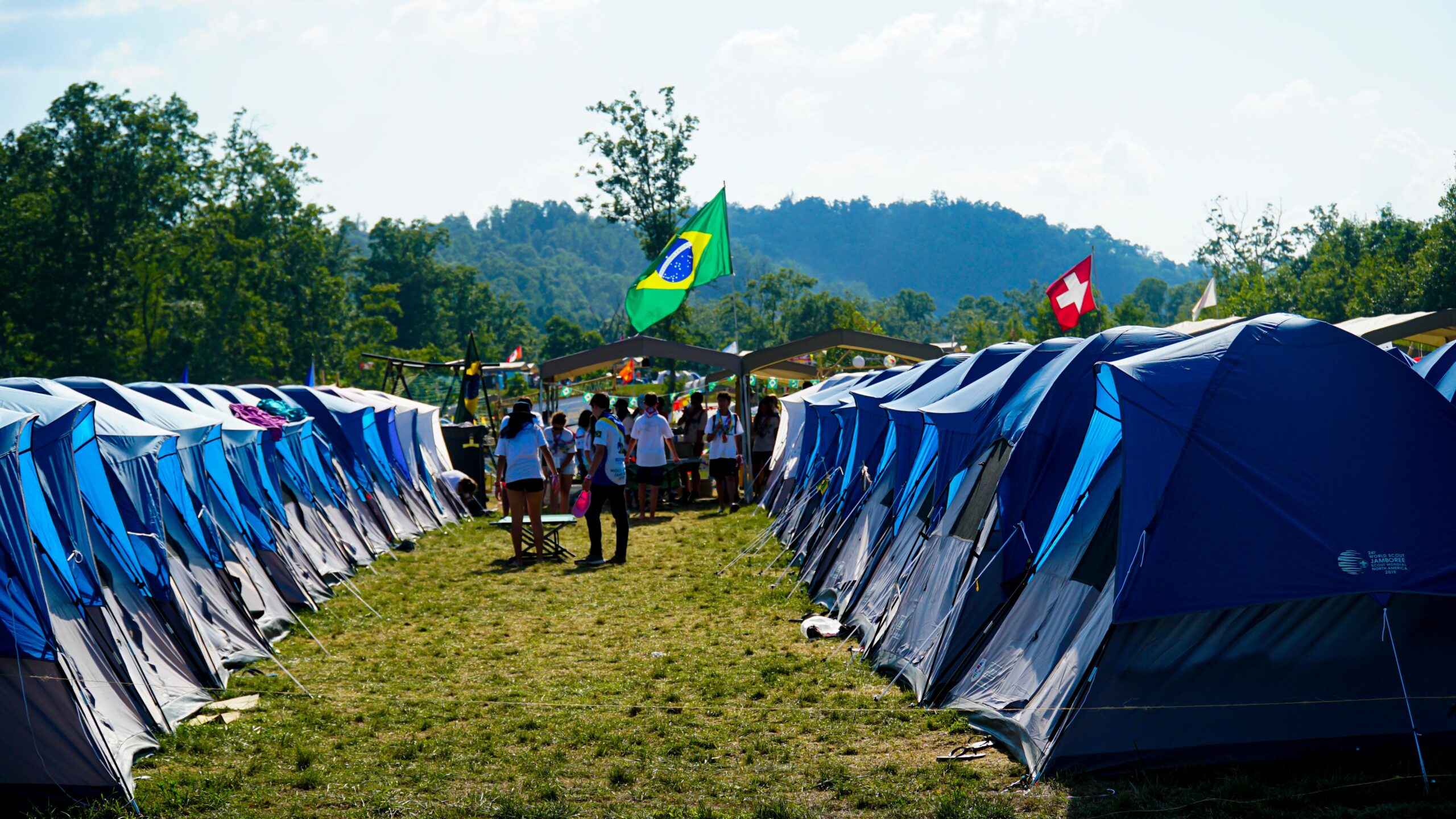
Scouts
Scout Branch Between 11 and 14 years of age we belong to the Scout section. We are…
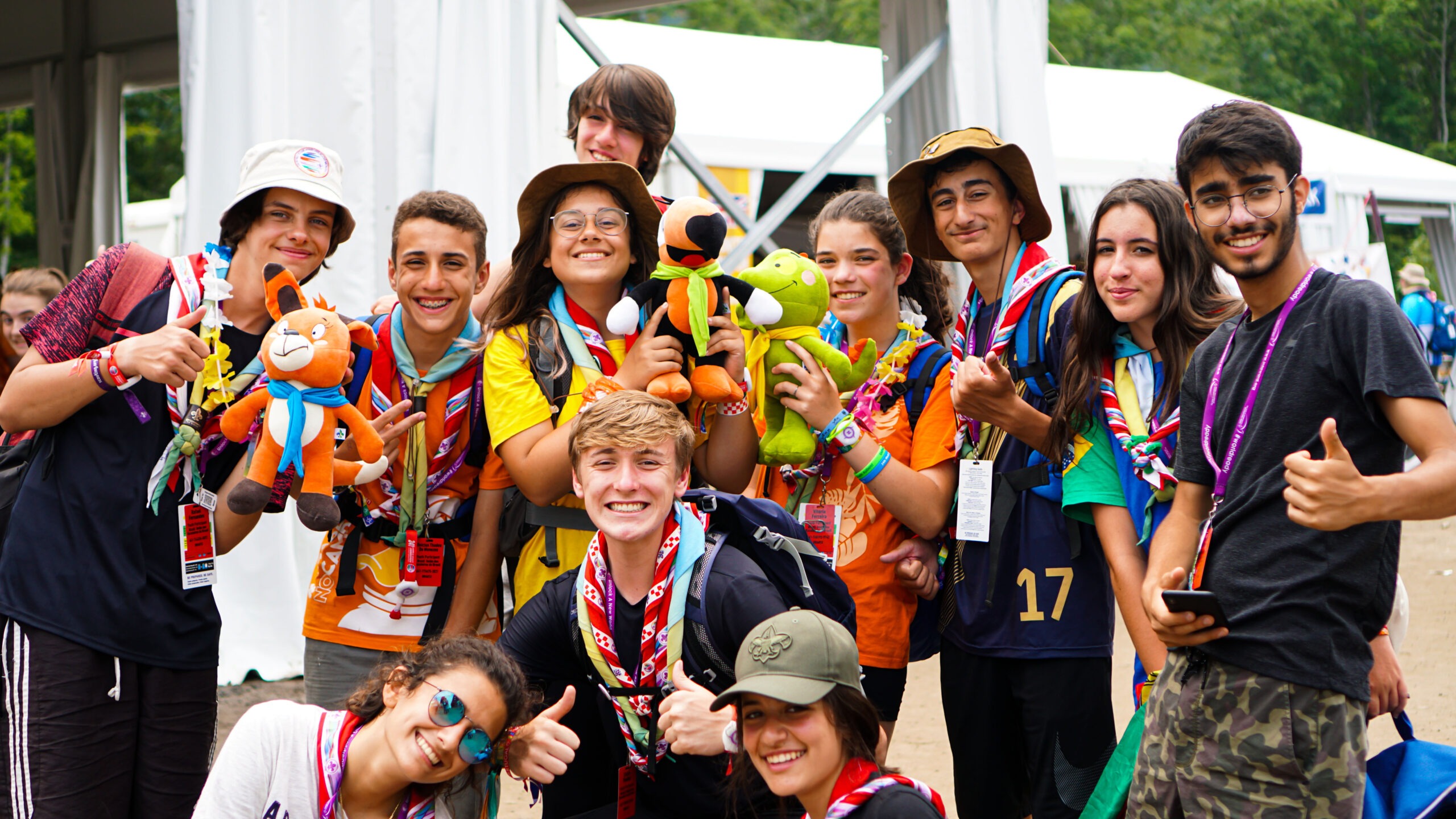
Senior Scouts
Senior Scouts The Senior Scouts are made up of young people between 15 and 17 years old.…
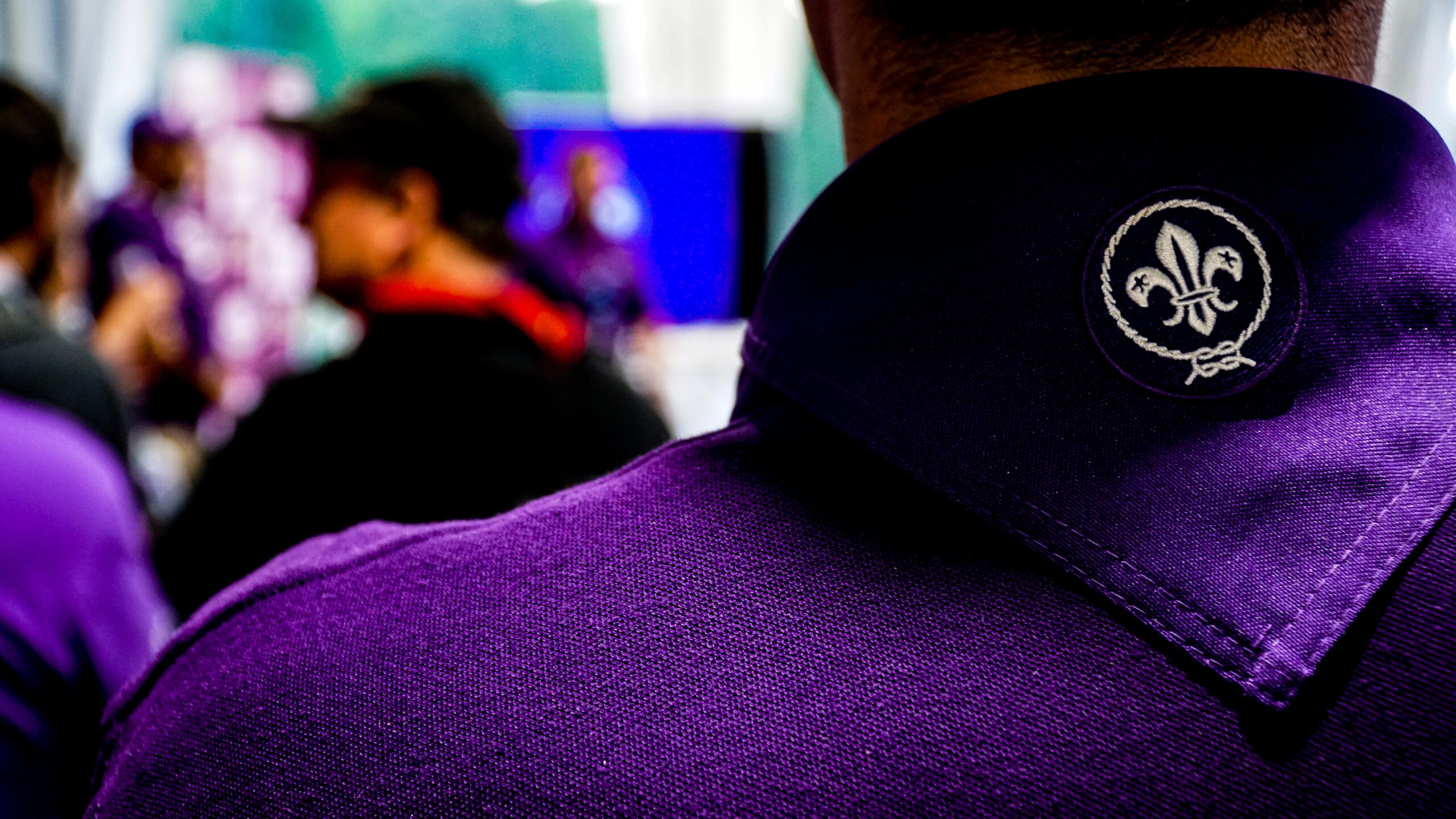
Administrative Scout Leader
Administrative Scout Leader Institutional administrative leaders are the adults responsible for running the institution at all levels…
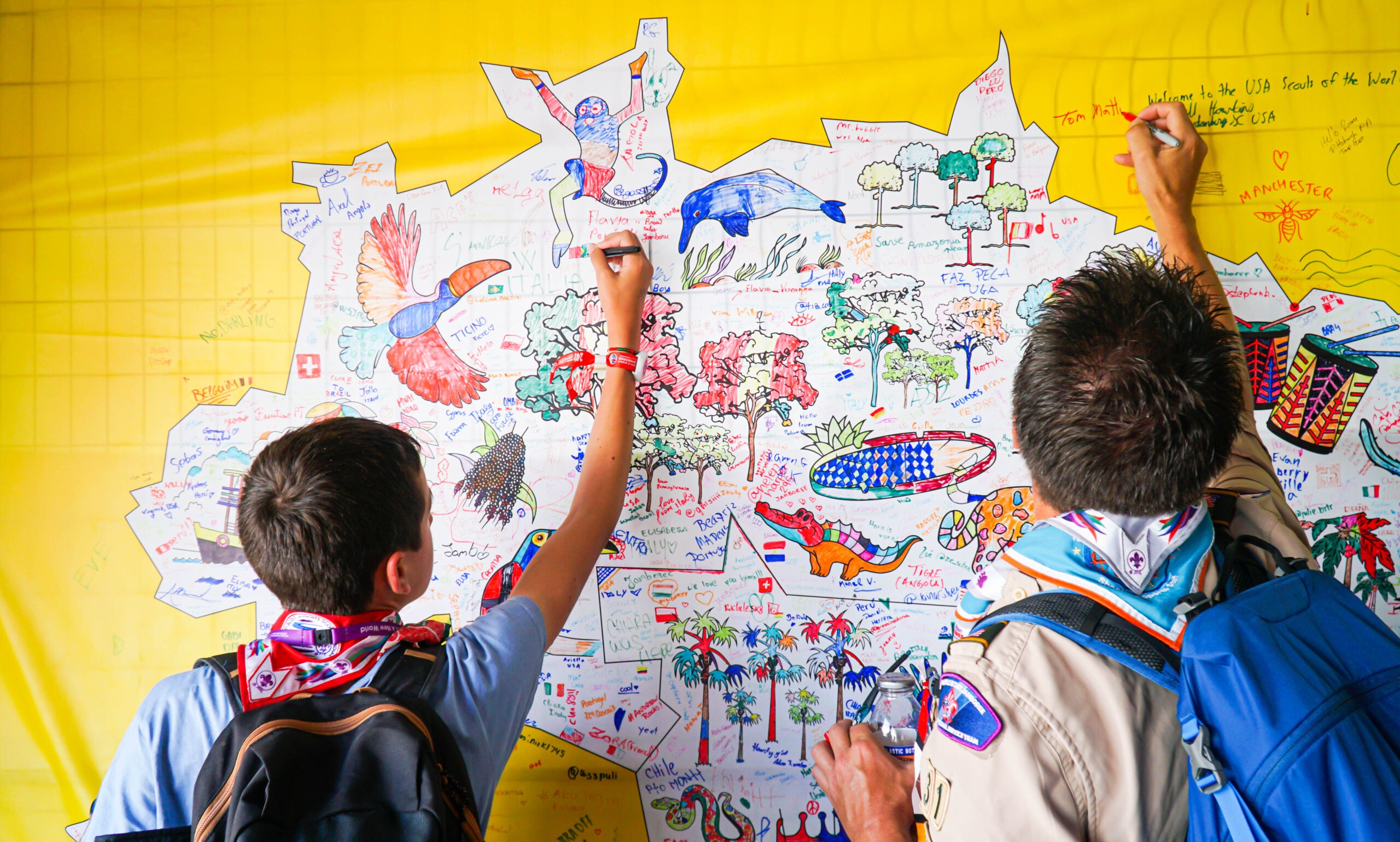
Cub Scouts
Between 6.5 and 10 years of age, we are wolf cubs. We learn lot about life in…
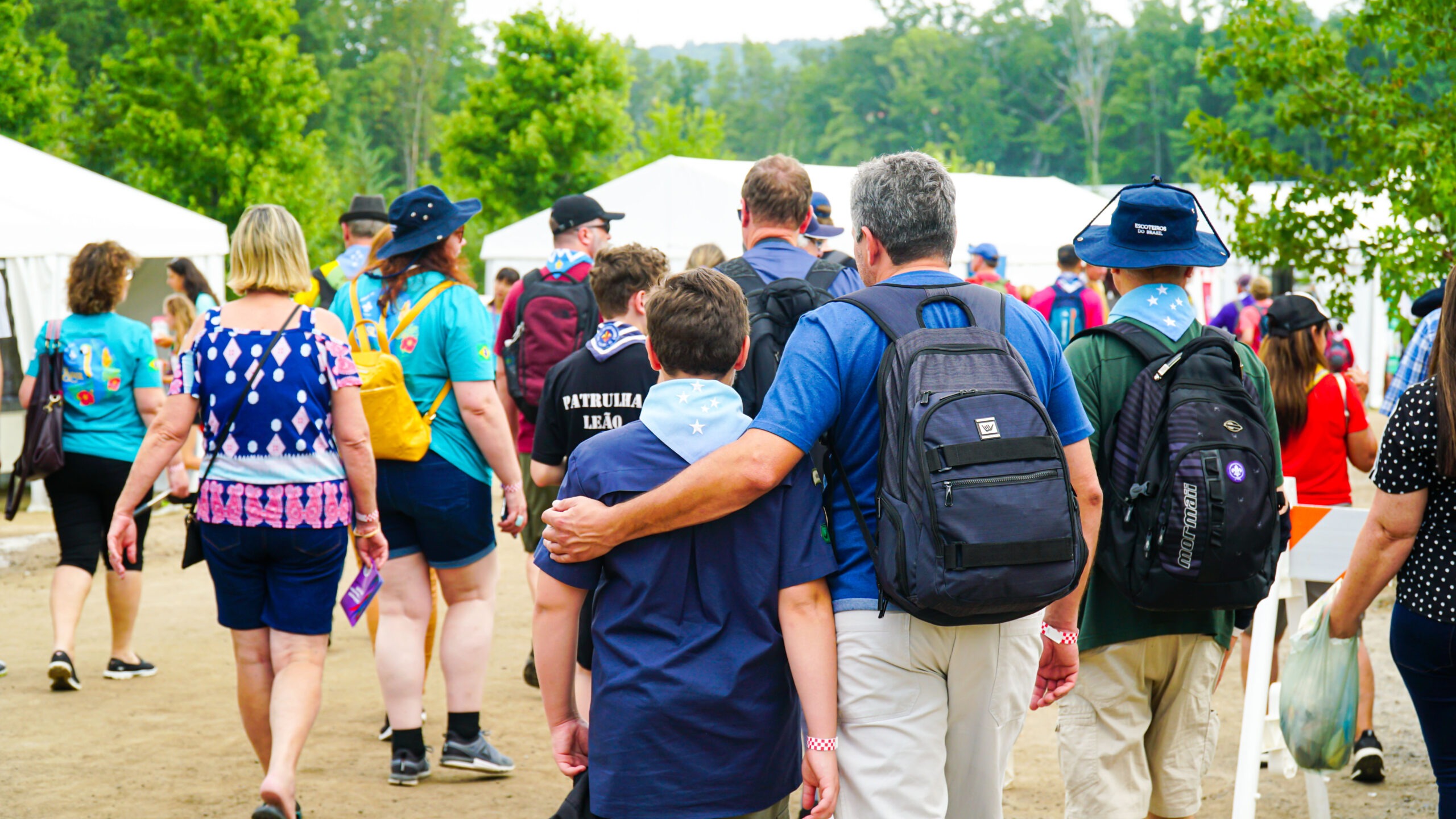
Education For Life
Education for Life We understand that educating for life is to reaffirm our humanistic view of education,…
Procure um Grupo Escoteiro


